“Mike (Dungeon Master):Algo se aproxima. Algo enfadado; hambriento de su sangre. Ya casi está aquí.
Will: “¡Qué es!
Dustin: Déjenme decirles. Es la Thessalhidra
Lucas: No es la Thessalhidra
Dustin: Yo les digo, es la Thessalhidra
Mike: ¡LA THESSALHIDRA!
Lucas: Maldita sea.
Mike: Will, tu turno.
Will: ¿Qué debo hacer?
Lucas: Lánzale una bola de fuego
Dustin: “Lánzale una bola de fuego a la hija de perra
Mike, Lucas, Dustind y Will: ¡14!
Mike: Impacto directo. La bola de fuego de Will, el sabio, impacta a la Thessalhidra. Esta aúlla del dolor y luego cae. Su mano con garras intenta alcanzarte por una última vez y… y…
“Lucas le corta las siete cabezas y Dustin las guarda en su mochila. Victoriosos, llevan las cabezas fuera del calabozo y se las presentas al rey Tristan. Él les agradece por su valor y coraje”
Dustin: Un momento, ¿eso es todo?
Mike: No, también hay una ceremonia de premiación
Dustin: Pero no tiene sentido
Mike: Tiene sentido
Dustin: Ehh no ¿Qué pasó con el caballero perdido?
Lucas: ¿Y la princesa orgullosa?
Will: ¿y esas extrañas flores en la caverna?
Mike: “No lo sé”
El diálogo que acaba de leer, estimado lector, corresponde a una de las escenas finales de la serie “Stranger things”.
Considero que la primera temporada de la serie, en general, es una joya del storytelling. Una historia perfectamente redonda, sin fallas. Esta escena, en particular, me recordó mis viejos tiempos de jugador de D&D. Me gustó mucho porque muestra claramente en qué consiste ser un buen storyteller y también qué debemos evitar al momento de contar historias.
“Algo se aproxima. Algo enfadado. Sediento de su sangre. Ya casi está aquí.”
¿Cómo no prestar atención a la historia con semejante gancho narrativo? El suspenso y tensión que logran generar esas palabras son increíbles. Apenas acaban, aunque genera un poco de angustia, y sabemos que lo que sea que viene es peligroso y que se alimenta de sangre, queremos saber qué es. Estamos dispuestos a quedar al borde de un abismo sólo por saber qué es lo que viene.
El personaje de Mike lleva toda la batuta narrativa de la escena y es maravillosa la forma como personifica a la Thessalhidra. De esa manera involucra mucho más a los jugadores en la narración.
También me llamó mucho la atención el final del diálogo:
“Un momento, ¿eso es todo?” “No tiene sentido”
Alegan los jugadores con relación al caballero perdido, la princesa orgullosa y unas flores extrañas, lo que evidencia la importancia de no dejar cabos sueltos en las historias, porque la audiencia es experta detectándolos. Esto lo explica muy bien Lisa Cron en su libro Wired for Story:
“Cada elemento que le agregas a tu historia, es como una gota de pintura
que cae en un cuenco de agua cristalina. Esta se propaga y colorea todo.”
Está claro que el ejemplo es ficción, pero en este mundo loco la realidad, a veces, se convierte en y supera a la ficción ¿se imaginan si nos apropiamos de ese rol de Dungeon Masters en nuestras conversaciones, personales y corporativas? De seguro las personas nos pondrían mayor atención y nuestro mensaje sería más efectivo y recordado.
*****
TELL STORIES LIKE A DUNGEON MASTER
“Mike (Dungeon Master): Something is coming. Something angry. Hungry for your blood. It’s almost here.
Will: What is it!”
Dustin: It’s the Thessalhidra, I’m telling you
Lucas: It’s not the Thessalhidra
Dustin: I’m telling you it’s the Thessalhidra
Mike: THE THESSALHIDRA!
Lucas: Damn it.
Mike: It roars in ager, Will your action!
Will: What should I do?
Lucas: Fireball Him
Dustin: Fireball the Son of a bitch.
Mike, Lucas, Dustin and Will :“14!”
Mike: Direct hit. Will the Wise’s fireball hits the Thessalhidra. It makes a painful “ (sounds of pain)”and then it crumbles to the ground. Its clawed hand reaches you for one last time and… and…”
Lucas cuts off its seven heads, and Dustin places them into his bag of holding. You carry the heads out of the dungeon, victorious, and you present them to King Tristan. He thanks you for your bravery and service.
Dustin: Whoa. Whoa, whoa, whoa, whoa, that’s not it, is it?
Mike: No, there’s a medal ceremony…
Dustin: Oh, a medal ceremony? What are you talking about? But it doesn’t make any sense.
Mike: It makes sense.
Dustin: Uh, no, what about the lost knight?
Lucas; And the proud princess?
Will: And those weird flowers in the cave?
Dungeon Master: I don’t know”
The dialogue you just read, dear reader, corresponds to one of the final scenes of the series “Stranger Things”
I think that, in general, the first season it’s a storytelling jewel. A perfectly rounded story, without flaws. That scene in particular reminded me of my old days as a D&D player. I really liked it, because it clearly shows what being a good storyteller is, and also one thing that we must avoid when telling stories.
“Something is coming. Something angry. Hungry for your blood. It’s almost here.”
How not to pay attention to the story with such a narrative hook? The suspense and tension that those words create are incredible. Once they end, even though it causes some anguish and we know that whatever is coming is dangerous and likes blood, we want to know what is. We are willing to step at the brink of an abyss to know it.
Mike’s character carries all the narrative baton of the scene, and it’s pretty wonderful the way he personifies the Thessalhidra. In that way he involves the players even more with the narration.
another point which I found important is at the end of the dialogue:
“Whoa, whoa, whoa, whoa, that’s not it, is it?”,
Allege the players in relation to the lost night, the proud princess and some weird flowers. This show how important it is to not let loose ends in your story, because the audience is an expert spotting them. This is beautifully explained in Lisa Cron’s Wired For Story:
“Each thing you add to your story is like a drop of paint falling into a bowl of clear water. It spreads and colors everything.”
It’s clear that the example is fiction, but in this crazy world where reality becomes an even surpasses fiction, can you imagine If we appropriate that Dungeon Master role in our daily, personal and corporate, conversations? For sure people would pay more attention, and our message would be more effective and remembered.






